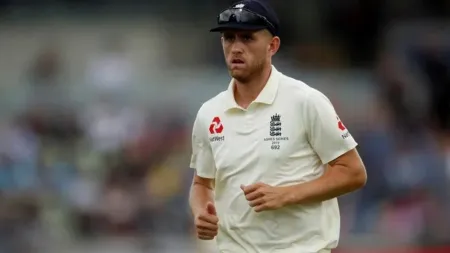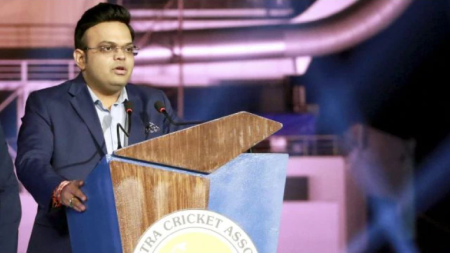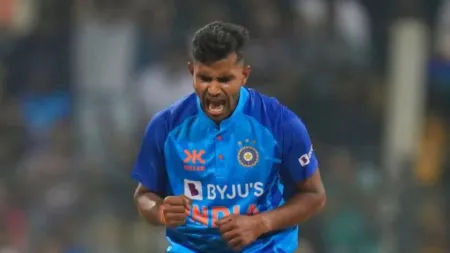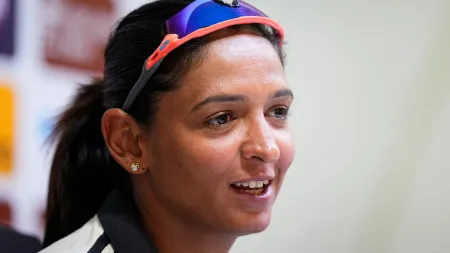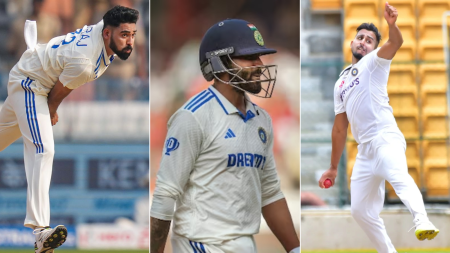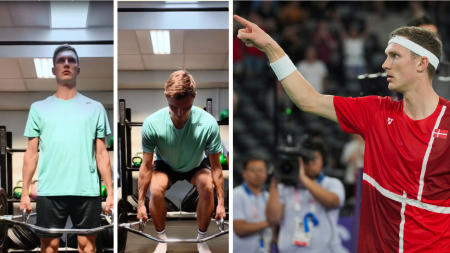Anish Giri interview: Why chess feels simpler these days, added pressure of being 30 and how the sport is getting younger
Grandmaster Anish Giri will make his debut in the Global Chess League later this year as an icon player for the PBG Alaskan Knights. He spoke to The Indian Express about his role for the Knights, why he believes they are the favourites, how much chess has changed since he became the world’s youngest grandmaster in 2009, and the challenges of playing formidable 10-year-olds in online events. Excerpts:
In the upcoming season of the Global Chess League, you will play for the PBG Alaskan Knights. What do you make of your chances?

We’ve been fortunate with the team. It’s a very strong group. On most of the boards we are favourites. Nodirbek Abdusattorov is a tremendous player. If anything, he deserves to be on the icon board at this point (rather than me). Our prodigy is absolutely top notch. Nihal Sarin is one of the most talented players, especially in speed chess, and this tournament is going to be a rapid tournament, so that will make a difference. Nihal is one of the favourites from the youngsters.
Some of the youngsters have moved on to the other boards (Superstars), but he’s one youngster that’s stayed on the prodigy board. So we have some advantages. Among others, Shakhriyar Mamedyarov is a tremendous player. On the female boards, we have Alina Kashlinskaya, who recently won the Tbilisi Grand Prix (to earn her second GM norm) and Tan Zhongyi, who is a former world champion. Honestly, I believe it is on my board where we are underdogs. Because on the Icon board there will be Magnus Carlsen and the likes. That’s going to be a challenge for me.
How do you see your role in the team, especially with younger players like Nihal and Nodirbek?
Although they’ve more than caught up with strength at this point, I do think I have lots of experience. I’m not that old in terms of age, but in terms of having played on the highest level, I am very old. I’ve been playing at the top since I was 15. So it’s been 15 years, and I’ve seen lots of generations pass by, and I’ve seen some players having to retire. I’ve seen youngsters coming up and going. I think there’s a lot I can offer in that sense as well. Also, I’ve always been experienced at handling other obligations besides playing. When you’re young you are focusing fully on chess and whatever happens around you passes you by. Anything related to stuff like media or organisational things, you could be oblivious to life outside the board. Which is a good thing, and makes youngsters strong at chess. But in the role of an icon, it helps that I’m a little more aware of what’s happening around the board as well. I’m looking forward to learning from these great players, and perhaps to help them learn something as well.
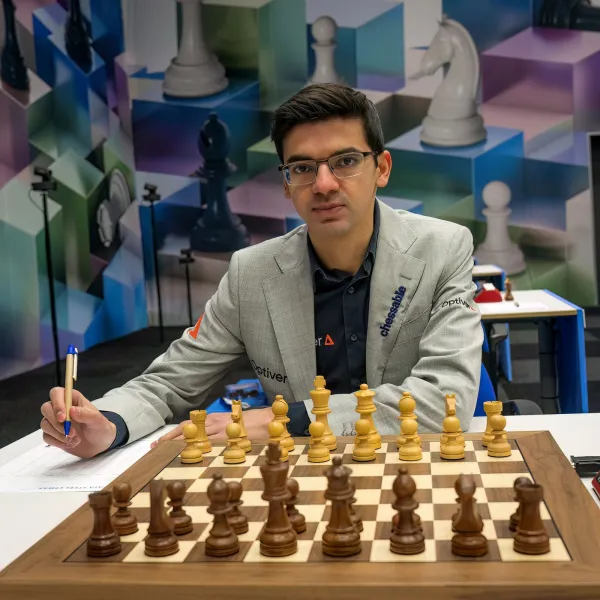 Giri will make his debut in the Global Chess League later this year as an icon player for the PBG Alaskan Knights. (PBG Alaskan Knights)
Giri will make his debut in the Global Chess League later this year as an icon player for the PBG Alaskan Knights. (PBG Alaskan Knights)
You were once the world’s youngest GM at the age of 14. Now players are becoming GMs at 12. Talk to us about how things have gotten quicker in the sport.
Definitely, chess has changed a lot. It’s not exactly the same. There’s been progress. Technological progress. The engines have gotten so much stronger. You can trust the computer at its immediate assessment, you just learn from what it says. Earlier, you needed to verify what it says you needed to do. It was not giving the truth, it was just giving a suggestion, the suggestion of a very strange player, because the computer was always good at calculation, but terrible at understanding.
So if you learn understanding from a computer, you would get terrible understanding. It had no intuition. Now, with neural networks, computers have gained intuition, and you can just learn from them. You just take them at face value, and that accelerates the learning process so much. As a result, you see younger grandmasters. I think it’s going to be more and more. You mentioned 12-year-old grandmasters, but I think we are in for a lot more.
There are 10-year-old players who are beating GMs as well. It’s unbelievable, because I played this one player sometimes online. It makes it feel like chess is a lot simpler than I thought. He didn’t do anything special. It was easy how he played. But then I think, he shouldn’t be beating me at 10, you know? But sometimes they do, and I lost some games. I mean I’m not worse than 10-year-olds yet. But I lose some games to these players and then I see that chess is not so hard after all if you got the right basics. There’s a lot of progress on that front for sure. We’re seeing chess getting younger and younger, and also more and more wider. Before only a couple of players would break through to the top.
Now there’s a whole array. Like from India, there’s a bunch. Many other countries, you’ve got a lot of potential players who are also heavily underrated because they are not in time to catch up with their level.
The rating is not enough to catch up. So you see, in open tournaments there are always some games between strong GMs, and a 2300- or 2400-rated player who is not a grandmaster and is supposed to be losing to the GM. But they’re not losing at all, and they’re playing at a high level. This is one of the reasons why so many cheating accusations are flowing around these days because people can’t believe it. They’re like they must be cheating. But most of them are not cheating. There might be some cases, but most of them are not. It’s just so hard to imagine that so many players are beating established players, and that is to do with the level of chess growing in general.
After he had just qualified for the Candidates, Vidit Gujrathi told there was a phase where he thought that maybe his time was over because of the growth of teenage prodigies. Did you ever feel like that?
As we speak, I’ve had an unfortunate streak of results (at the Sinquefield Cup). So my ranking has dropped tremendously. I’ve had these experiences before and now, there’s additional pressure from people wondering if I’m old. I know that I’m not because I know that in chess 30 is not the age when you are dropping. You’re maturing as a player. You’re physically at your peak. You can read up on the science on physiology of people at 30, you’re doing great. But there is that additional pressure, because before nobody would even question that. They’d be like, okay, Anish is just having a bad tournament. But now I feel in my head that maybe it’s not me having a bad tournament. Maybe it’s the youngsters, you know. It’s tempting to blame everything on the youngsters, for your own failures. But it is still up to you. We’ve got that within us. We’ve had bad moments before the youngsters came. We’ll have them now, and we’ll have them when the youngsters are not youngsters anymore.
Top Sports News Now- BCCI Secretary Jay Shah becomes youngest-ever ICC chairman
- Anish Giri interview: Why chess feels simpler these days, added pressure of being 30 and how the sport is getting younger
- Despite four stress fractures, fast bowler Shivam Mavi says he won't compromise on pace
But you have to, you know. Get over your tough periods and come back stronger, and I’m sure I will, too. Youngsters are not to blame for your temporary bad form. The youngsters have come. They’re here. But I don’t see any reason why the older players — definitely not the 30-year-olds — should go.
Disclaimer: The copyright of this article belongs to the original author. Reposting this article is solely for the purpose of information dissemination and does not constitute any investment advice. If there is any infringement, please contact us immediately. We will make corrections or deletions as necessary. Thank you.
